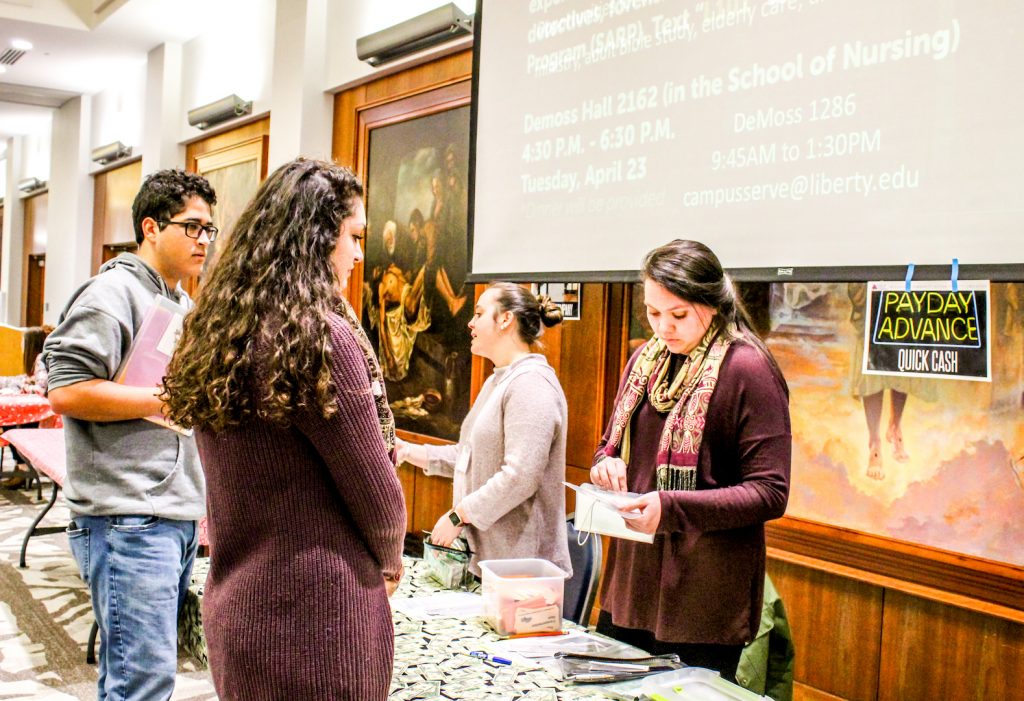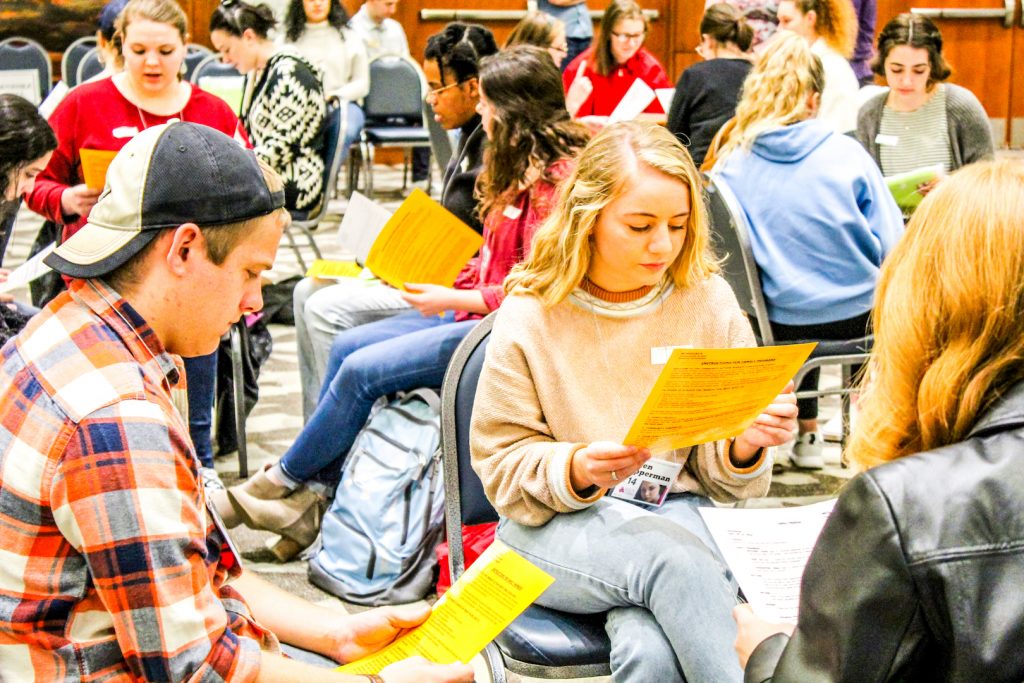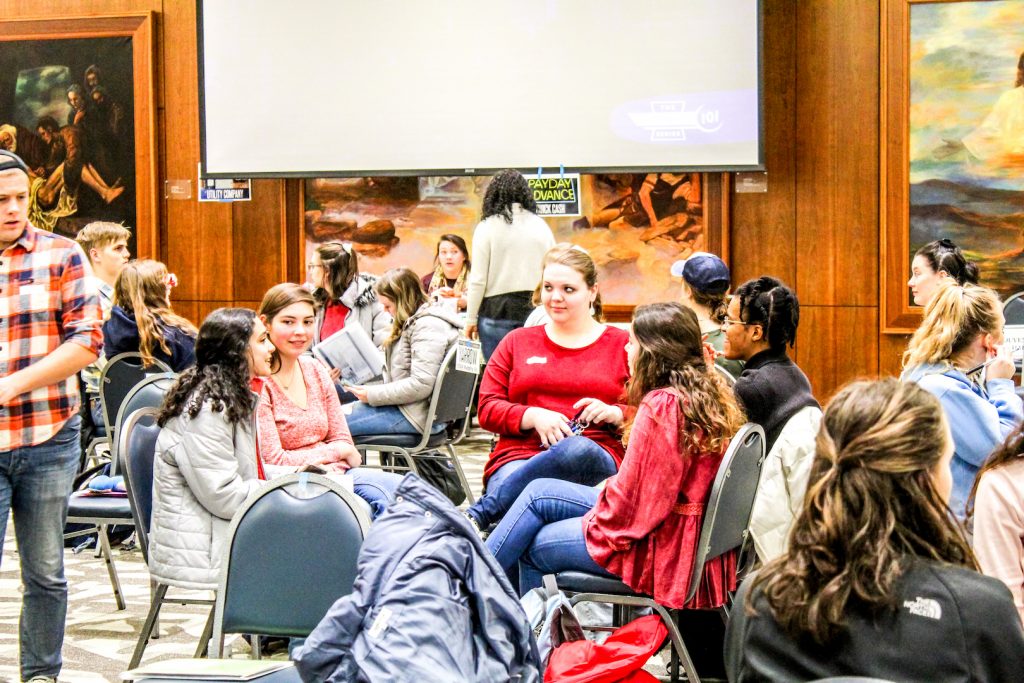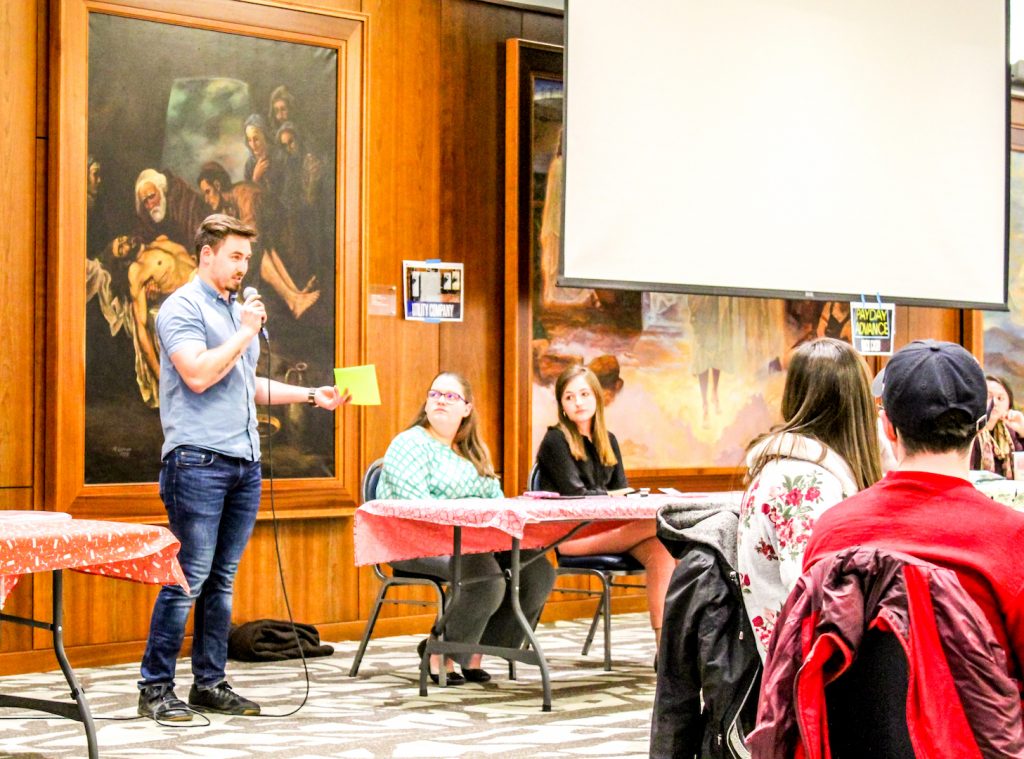Unlearning Poverty session held by LU Serve as part of Lynchburg 101 series

LU Serve’s website promised that students would be challenged to, “confront (their) stereotypes regarding poverty, and experience what it is like to live in poverty.”
The Unlearning Poverty session delivered on that promise. The event held in the Montview’s Alumni Ballroom Feb. 19 was part of “The Lynchburg 101 Series” hosted by LU Serve.
Unlearning Poverty was facilitated by the Virginia Cooperative Extension. According to their website, the VCE “brings the resources of Virginia’s land-grant universities, Virginia Tech and Virginia State University, to the people of the commonwealth. …. To better utilize our resources, we form collaborations with hundreds of public and private partners and volunteers, who help us reach larger and more diverse audiences and also leverage the impact of our work.”

According to Corey Leistner, the Campus Impact Coordinator for LU Serve, a lot of LU students had expressed interest in learning more about poverty. As a result, according to Cassandra Marroquin, LU Serves Associate Director, LU Serve, in conjunction with Lynchburg Public Schools, brought the Virginia Cooperative Extension to facilitate the event. This was the first time this experiential forum had been done at LU, according to Leistner.
The purpose is to educate students who may not be familiar with the struggles of people who live at the poverty line. The poverty rate is 23.1%, according to the City of Lynchburg website. Some of the participants expressed that they expected the event to be a sit-down-take-notes affair, but got more than that. Unlearning Poverty was one of the first times students could get immersed in activity.
After checking in, participants were given a fake name tag and were put into groups based on the last name on the tag. After everyone had arrived, Karen Tanner, the facilitator of the “poverty simulation”, gave the group instructions.
Using the name tags, Tanner assigned participants to “families,” consisting of three to five people. Some people were assigned to be parents, and some were assigned to be their children. Ages, races and genders were randomly assigned.
Each family had a packet with multiple pieces of laminated paper inside including tickets with house hold items like electronics and jewelry and their worth, tickets for transportation, and information on each of the family members.
The task was to make it through four weeks of life in the new family by juggling the family’s income, expenses and some unexpected things that came up during the hour-long exercise.
According to Tanner, the poverty simulation is a demonstration that simulates what it is like to live in poverty for one month.
Students assigned to be “parents” were to report to “work” for seven minutes, while those assigned to be school age children had to go to “school.” During work and school, participants completed worksheets with questions about poverty in American as well as Virginia. Along the walls of the Alumni Ballroom were situated various tables labeled as common neighborhood destinations such as a supermarket, social services office, interfaith ministries, pawnshop and a place to get cash quickly.




Grace Hildebrand | Liberty Champion
During the simulation, parents were frantically making plans on how to get food, money, and take care of the issues their children brought home from school. Multiple families were evicted from their “homes,” some had members thrown in “jail” for reasons varying from bringing a weapon to school to leaving a “baby” at the social services office. Some “families” had “possessions” stolen from their homes, while others had been ripped off by “stores.”
After the simulation, Tanner asked everyone how they felt about what they had just experienced. Attendees expressed feeling stressed, frustrated, hopeless and angry. One girl said that she had expected an event where she would sit down and take some notes. Instead, she was given a fun, eye opening experience that she would take with her for the rest of her life.
